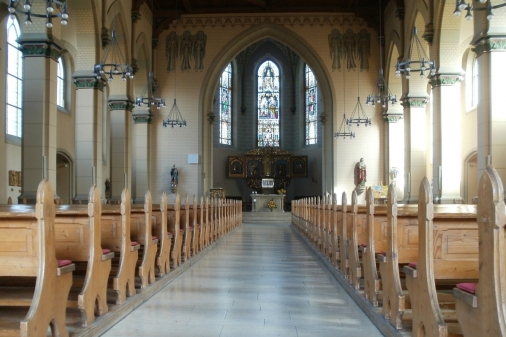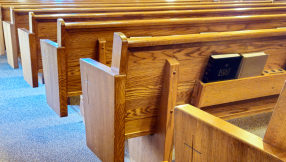How do you welcome those who aren't like you in your church?

That was a question I grappled with during a recent training day on embracing diversity within the church.
I was reminded of the theology of diversity; that God is diverse in his very nature and creation is a reflection of that. In his ministry, Jesus challenged the preconceived notions of Jewish leaders about their own superiority and he reached out to those often neglected or mistreated by society.
In Galatians we are reminded that:
"In Christ Jesus you are all children of God through faith, for all of you who were baptised into Christ have clothed yourselves with Christ. There is neither Jew nor Gentile, neither slave nor free, nor is there male and female, for you are all one in Christ Jesus." (Galatians 3:27–29)
And Revelation gives us a wonderful picture of a unified, yet totally diverse, worshipping people:
"There before me was a great multitude that no one could count, from every nation, tribe, people and language, standing before the throne and before the Lamb. They were wearing white robes and were holding palm branches in their hands. And they cried out in a loud voice: 'Salvation belongs to our God, who sits on the throne, and to the Lamb.'" (Revelation 7:9-10)
My husband and I are so grateful, and so amazed at how God has drawn people from many different nations to our local church. Since it began 15 years ago, each summer we have an international day in which we celebrate our diversity with great colour, song – and food! Even while we were still a small church plant, we counted upwards of 18 different nations being represented.
And yet...
If I'm totally honest, how do I welcome and interact with those who aren't exactly like me – whether the differences are due to race, gender, background or personal preferences?
We are white, and middle class, and the majority of our leaders are too. So how are we addressing that? We don't want to engage in tokenism, but we also have a duty to provide a stimulating and encouraging environment for all our congregation members.
It was so humbling, and challenging, to hear from different voices during our training day as leaders who have experienced what it is like to be in a minority shared from their hearts. One East End leader said that he had noticed that sometimes middle-class values can be mistakenly seen as biblical values, and people can start to change their behaviour to try to be more middle-class as a result. I love how he reminded us that Jesus came as a builder, not a university lecturer!
Others spoke about how they had seen friends leave the church because they felt excluded and overlooked. Parts of the UK church can, at times, be very male, white and British in its outlook and it was so good to be reminded that, if we've never been in a minority ourselves, we simply may not be aware of this issue. I found Andy Walton's piece on the history of the church and how racial division has held it back really informative.
This is an issue that we ignore at our peril. I recognise it in myself. My shy, introverted personality means that I tend to speak to those like me. I am more comfortable then, as it is easier to relate. But, actually, I think it is more than just my own personality – too quickly we can default to 'tribalism', and create division in church where there should be unity by all clustering together with those who are just like us. The church should be so much better than that! Yes, it does take effort and time. Communication, listening to one another and being prepared to be uncomfortable at times are keys to helping us embrace diversity.
Here are some of the things I took away from the day's teaching and discussion I had on this issue. I hope some of it challenges you too:
1. Look for ways to celebrate diversity
The simplest way to start is by thanking God for the diversity within creation and within his people. We had a powerful time of prayer during our training day, in which people prayed in their own languages. While I didn't understand all (okay, most!) of it, my spirit could respond as we were all on common ground – worshipping our God for who he is.
2. Be intentional
As I've said, we tend to stick with people we feel safest with – which are usually those most like us. It takes intentionality to walk across the room and talk to someone we don't usually converse with, who may not come from the same background or even speak the same language.
3. Learn to listen
I have been so blessed when I have taken time to talk to someone who has a very different background to me. There is such richness in life, and having my eyes opened to things I've never heard of or thought about before enriches me. There is a give and take in that, as I can share things about myself that the other person may not have experienced before, too.
4. Look beyond yourself
It is so easy to think that we are always right, and our way is the best (or only) way. But God has created each one of us in his image, and we are a diverse people! To always think about issues from our own perspective makes us selfish and narrows our hearts. To always spend our time with those who agree with us limits our understanding. We need to keep that vision in Revelation in our minds at all times – God is drawing a people from all tribes and tongues and we need to enlarge our own vision to reflect that.
So, to go back to my original question, how do you welcome those that aren't like you?
It will take time, energy, trust and a huge dose of patience, grace and forgiveness to connect across cultures. There will be misunderstandings at times too – but we can learn so much from one another. Remember: nothing beats God's diverse people 'doing life' together.
















